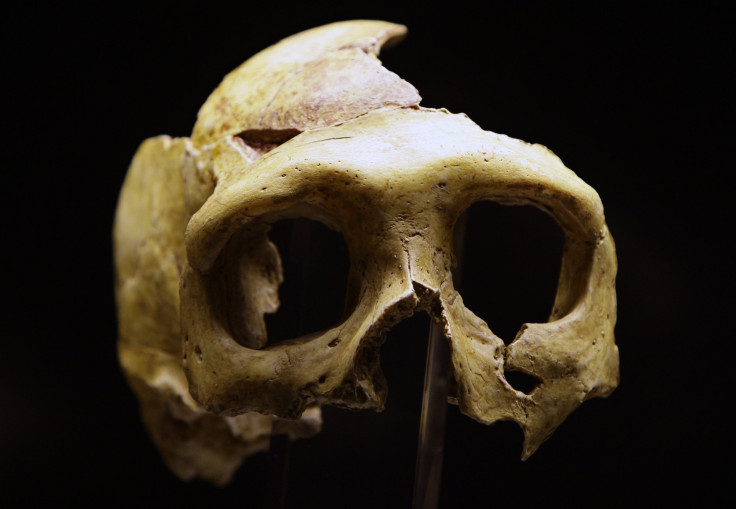Scientific Discovery: Neanderthal Genes To Thank For Allergies, Strong Immune System

Do you have itchy eyes after flowers begin blooming each springtime? If so, you can thank your Neanderthal ancestors, two newly released studies suggest.
Although scientists once considered Neanderthals mindless beasts, a growing body of evidence has been developed showing that Neanderthals not only lived sophisticated lives but also coexisted and sometimes mated with modern humans. Some studies have shown that as much as 6 percent of modern Eurasian genomes were inherited from ancient hominins, including Neanderthals.
In two studies published in the American Journal of Human Genetics this week, researchers pinpointed three genes from Neanderthals and Denisovans, another type of early human, believed to have assisted in fighting infection and regulating immunity. They may helped early humans as they traveled the world and encountered new types of bacteria, fungi and parasites.
You can thank Neanderthals for your bacterial immunity, but they may take the blame for your allergies https://t.co/Lq541eoJT3 via @statnews
— Harvard Health (@HarvardHealth) January 8, 2016“When the body detects that there is some foreign substance in the body, these are the guys that react immediately,” Janet Kelso, a researcher at the Max Planck Institute for Evolutionary Anthropology in Leipzig, Germany , who one of the study teams, told NPR. “It kind of calls in the big guns.”
However, those same disease-fighting systems can also overreact to certain substances, such as animal hair or pollen, thereby increasing one’s risk of allergies. According to the scientists, it is unclear whether those genes are still useful in preventing people from succumbing to dangerous pathogens or just nuisances nowadays.
“That’s sort of the $1 million question,” Lluis Quintana-Murci, a researcher at the Pasteur Institute in Paris who led the other study team, told NPR. “What was good in the past may or may not be good for us today.”
The scientists said the recent findings reflected just one of the many ways our genes have been influenced by Neanderthals. Past studies have found that Neanderthal DNA has also influenced human hair and skin. The latest research appeared to indicate that interbreeding served a functional purpose, Kelso said.
“Neanderthals, for example, had lived in Europe and western Asia for around 200,000 years before the arrival of modern humans,” she said in a statement about the study. “They were likely well adapted to the local climate, foods and pathogens. By interbreeding with these archaic humans, we modern humans gained these advantageous adaptations.”
© Copyright IBTimes 2024. All rights reserved.






















